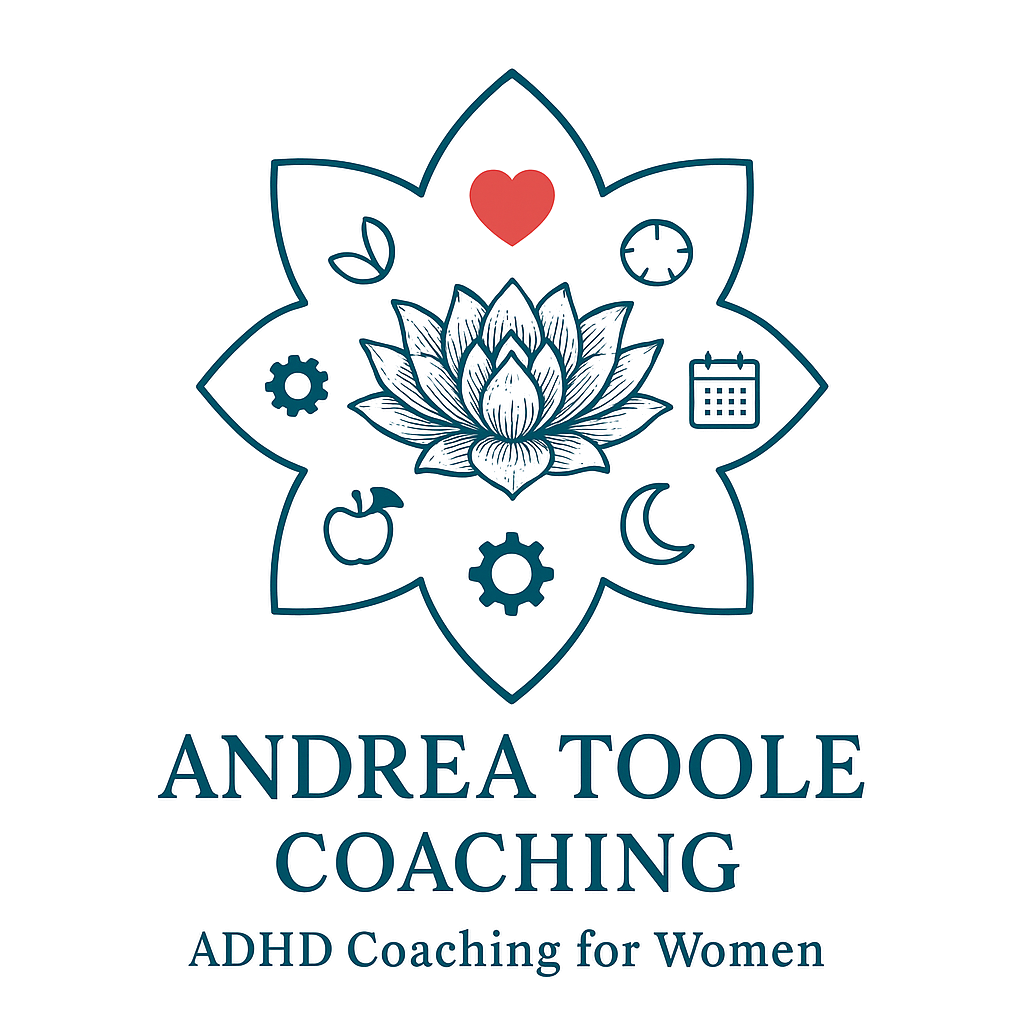What is ADHD coaching, and how can it help?
You may be familiar with therapy or have even experienced it yourself. However, ADHD coaching brings a different perspective, and for many, it could be the key to unlocking their potential.
If you’re navigating life with ADHD—diagnosed or not—and you find yourself feeling intelligent and capable yet still overwhelmed, coaching may be precisely what you require.
Let’s explore what ADHD coaching entails, how it operates, how it differs from therapy, and how it can genuinely transform your life.
What is ADHD coaching?
ADHD coaching is a collaborative, forward-focused support system that helps you:
Build systems that work for your unique (neurodiverse) brain
Manage time, energy, and focus more effectively - but in my practice, I de-emphasize those aspects because I believe that “time management” and “focus management” naturally emerge when other issues are addressed. Focusing on the wrong thing is distracting, which is what the ADHD brain wants but doesn’t necessarily need.
Understand and work with your unique patterns and tendencies
Set and follow through on goals (even the boring ones)
Navigate everyday challenges without shame or spiralling
Think of an ADHD coach as a strategic partner who helps you create real-life plans you can stick with, not someone who tells you to “try harder.”
I specialize in coaching high-functioning, often late-diagnosed adults with ADHD who look like they have it all together but feel like they’re secretly falling apart. If that’s you, you’re not alone, and you’re not broken. You’ve just been trying to use tools that weren’t built for you.
It’s not in your therapist’s area of expertise.
Let’s break that last point down further.
How is coaching different from psychotherapy?
Psychotherapists often focus on the past: processing trauma, diagnosing conditions, and healing emotional wounds.
Coaches focus on the future. We look at what’s getting in the way of how you want to live now, and how to move forward with intention.
Here’s a quick breakdown:
Therapy
Looks at past experiences
Treats mental health concerns
Explores emotional healing
ADHD Coaching
Focuses on present & future goals
Builds practical strategies
Often time-found (such as 4-12 weeks) and results-driven
Therapists typically undergo comprehensive training and have access to resources that address mental health issues within a broader context. They are mental health generalists.
This capability can be a significant asset, especially when individuals are diagnosed with ADHD alongside other mental health conditions such as OCD, depression, or anxiety.
However, few therapists are experts in ADHD, nor do they have personal experience managing this condition.
ADHD coaches tend to be much more hands-on with the practical aspects of coping with ADHD.
We are client-led and collaborative. I develop personalized ADHD management plans with each of my clients.
That said, many people benefit from both ADHD coaching and therapy. Coaching doesn’t replace therapy, but for individuals with ADHD, coaching fills a different gap. It’s the “what now?” after diagnosis, the “how do I do this differently?” when strategies keep failing, the bridge between awareness and action.
I believe that most people should do at least one round of therapy.
And if you have a therapist, a personal trainer and other wellness experts, why not see an ADHD coach? Each expert offers something different and useful.
Benefits of ADHD coaching
ADHD coaching helps you:
Stop spiralling into shame. You’ll learn how to recognize your patterns without judgment and shift them.
Get more done with less stress. We’ll work with your natural rhythms, not against them.
Create systems that stick. Whether it’s a calendar, a morning routine, new eating habits, or how to handle your inbox, we’ll design strategies that feel sustainable.
Gain clarity. You’ll learn how to prioritize, simplify, and focus on what matters.
Feel seen. You’re not lazy. You’re not flaky. Your brain isn’t broken. It just works differently, and that’s okay.
I’m not here to fix you. I’m here to help you figure out what works for you, so you can show up as the version of yourself that feels most true.
Why hire an ADHD coach like me?
You don’t need someone to tell you what’s wrong with you. You need someone who gets it.
As an ADHD coach (and someone who has been there), I bring a mix of lived experience, professional training, and strategies that are grounded and practical.
I use a framework called PRIMED that helps you examine six areas of your life—Physical Health, Routine, Intake (food and energy), Mental State, Environment, and Downtime—to find what’s draining you and rebuild in a way that makes sense for your nervous system.
My clients aren’t just looking for productivity tips. They’re looking for calm, clarity, and confidence. ADHD coaching gives them that. Not overnight, but with consistent, personalized support.
Key takeaways
ADHD coaching is not therapy; it’s a results-focused partnership that helps you move forward with clarity and confidence.
It’s particularly beneficial for high-functioning, overwhelmed adults seeking more ease and less chaos.
Coaching supports executive function, energy management, goal setting, and the development of sustainable systems.
The right coach recognizes you, not just your struggles, but your strengths.
FAQ
Q: Do I need a diagnosis to work with an ADHD coach?
No. Many of my clients are self-identified or late-diagnosed. If you resonate with the traits and want support, you’re welcome here.
Q: Can I do therapy and coaching at the same time?
Absolutely. They work well together. Therapy can support emotional healing, while coaching focuses on structure and strategy.
Q: How do I know if coaching is right for me?
If you’ve tried planners, productivity tips, or even therapy and still feel stuck—coaching might be the support you’ve been missing.
Q: What’s the next step?
Visit my coaching page to learn more and book a call.

